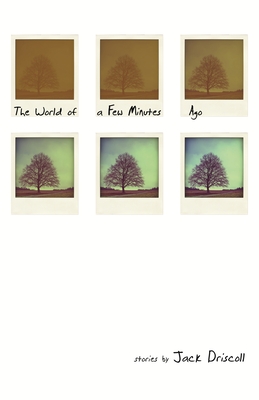Editor’s Note: For the first several months of 2022, we’ll be celebrating some of our favorite work from the last fourteen years in a series of “From the Archives” posts.
In today’s feature, Jennifer Audette maps the profound experience of learning to love a novel she wanted to hate. The essay was originally published on June 1, 2015.
I fell for Ben Lerner during a snowbound weekend while my husband was away in Brooklyn, of all places. I picked Ben up at the library on a Friday night. He looked pretty forlorn on that New Fiction shelf with his half-blazing grid of New York City staring out at Vermont’s dirty snowbanks. Digital clock font told the time: 10:04. Two other locals had had him already; they’d left their marks on the comment sheet provided in the back. Someone had circled 3 for Poor and scrawled: what’s the point? Someone else rated him a 9 for Terrific; couldn’t put it down, followed by the non-sequitur: Mr. Frost is a great poet.
10:04 is self-referential metafiction. To increase the eye-rolling factor, the protagonist is a Brooklyn-based poet/novelist, Ben, who’s just gotten a three-figure deal to write a novel based on a short story he published in The New Yorker. That story, The Golden Vanity, makes up the second part of 10:04. He’s invited for a residency in Marfa, TX, to work on this project. Alex, his best friend, wants him to father her child via sperm donation even though he’s recently been diagnosed with a heart defect that may be genetically inheritable. Storms—unnamed, but Irene and Sandy, sound nice—bracket what passes for action. The Occupy Movement presents itself, as does Brooklyn’s gentrification via co-ops and Whole Foods and artisanal cocktails. The Challenger explosion and Ronald Regan make appearances. Many characters come and go: Alena, a visual artist girlfriend of sorts; Roberto, an eight-year-old, Hispanic mentee; Natalie and Bernard, Ben’s literary progenitors; an occupy protester as shower-user/dinner guest; Noor, a co-op volunteer working alongside Ben; Ben’s father, via a multi-faceted story told to Alex about parental death; a Polish poet at the Marfa, TX, residency who Ben thinks of as Robert Creeley. Works of art—from Bastien-Lepage’s Joan of Arc to the 80’s movie Back to the Future—punctuate the story in a way reminiscent of Proust’s In Search of Lost Time. All this, and more, in a slim 241 pages, a handful of those include pictures; some self-referential white dudes don’t need six volumes to say their piece.
Somewhere around page 40, Lerner goes on and on in, what seemed to me, plodding—this then this, and then and then—prose about Natali and Bernard and their daughter/not-daughter with whom Ben was obsessed for a time. It felt like being forced to listen and nod along as an elder relative rambled about people to whom you had no connection.
In another section the narrator works his volunteer hours at the co-op alongside Noor, who exists for us in only these nine or so pages. Lerner uses hardly any direct dialogue. He opts, instead, for long passages of what amounts to strange combinations of first person narration from Noor’s perspective given to the reader as summarized dialogue via Ben. To me, it was noticeably awkward. At worst, bad writing, at best, affected but not effective technique.
 Was this intentionally sloppy narrative? I wanted validation for what I sensed. Snobbish trickery was afoot. I popped open five, seven, eight tabs of reviews: NYT, The Guardian, The Telegraph, LA Times, New Republic, NPR, Slate, but no validation did I find. Critics tossed the standard treats for their darlings: deeply brilliant, deeply intelligent, deeply funny, deeply observational, disarmingly clever, luminously original (reviewers, so generous with adverbs).
Was this intentionally sloppy narrative? I wanted validation for what I sensed. Snobbish trickery was afoot. I popped open five, seven, eight tabs of reviews: NYT, The Guardian, The Telegraph, LA Times, New Republic, NPR, Slate, but no validation did I find. Critics tossed the standard treats for their darlings: deeply brilliant, deeply intelligent, deeply funny, deeply observational, disarmingly clever, luminously original (reviewers, so generous with adverbs).
I reached for any scrap of paper (without disrupting the cat on my lap) and spent the next two days arguing with Ben Lerner and his book. I took him to bed with me. He was still there, on my husband’s side, when I woke. He didn’t make breakfast or help with all the shoveling, but I couldn’t let him go.
Sheets of paper accumulated in piles like the snow outside, scrawled with page numbers, quotes, examples of where I thought he’d gone wrong: Why use the distracting craquelure once, much less three times? How much proprioception does a book need? Ditto quinoa, tungsten lights, urea and salts, ruby and sapphire. Too many DFW-style scientific name substitutions. Were mild lacrimal events Lerner’s irritating attempt at coining a howling fantods?
Was Lerner just playing around with me? I mean, the sections mentioned above, about Natali and Bernard, about Noor, if a different writer had put that section into a novel, some gentle, early reader might’ve suggested it plodded badly or was too removed. Why should the reader care about these people? The “summarized” conversation with Noor in the coop? Same thing. Noor’s story is compelling. Why does Lerner choose to tell it through the narrator’s awkward and lengthy summation? I found the prose pale and paunchy in places where I expected more. Had I ever read such a passively voiced work? Other times, the prose tingled my spine and made me swoon. Page 108’s first full paragraph, for example, was beautiful—the one that begins: “I breathed in the night air that was or was not laced with anachronistic blossoms and felt the small thrill I always felt to a lesser or greater degree when I looked at Manhattan’s skyline and the innumerable illuminated windows…” Obviously, Lerner knew what he was doing, so why was he doing it like this?
I’ve read other metafiction: DFW’s Infinite Jest, a little Borges, Nabokov’s Pale Fire and Ada, twice. In those works I never doubted what I’d call the author’s generosity to the story or to his readers. But I seriously doubted Lerner’s generosity. Is he a poet sticking it to novelists? Or maybe he’s a poet-cum-novelist flipping off the world of narrative fiction and The New Yorker? I felt like he was shooting me a snarky leer: Ha! Look at this 40-year-old, pseudo-intellectual in rural Vermont. No formal training in the finer points of art and culture, but just smart enough to be jerked around by a “Brooklyn guy with glasses.” Or maybe his hyper self-consciousness was catching.
And so, I kept going; it’s a short book and I enjoyed making my angry notes. Also, let’s be clear, I wanted to “get it.” I wanted to be part of the in-group. Maybe I wasn’t getting it because I’m not of the city, not of Brooklyn, not of the art scene, the poetry scene, or even the bloated creative writing MFA scene. I’m inherently the out-group. My formal literary instruction comes via a small-town writer’s center, a Coursera MOOC, a Tin House Summer Workshop and a reading of Nabokov’s Lectures on Literature. Maybe I wasn’t getting it because I’m not smart enough. Maybe my lazy brain demands a more traditional narrative, something more familiar. Am I that unsophisticated? What was I missing?
Every time the narrator had what I’d describe as a meaningful experience or emotional response to something, he’d negate it. Whether through hyper self-consciousness, conscious sedation, drugs or the suspect actions of memory, the results were the same—dissociative experiences. Sometimes he’d deploy “a lacrimal event” to do the dirty work, like at the end of the gorgeous paragraph I mentioned above. The phrase minimizes and intellectualizes the act of crying while it pokes fun at the conventional wisdom to steer clear of the word tears in literary fiction. This type of writing feels emotionally constipated and impervious to any type of criticism. The author/narrator makes it clear that he’s aware of all the reader’s possible arguments, of the manipulative artifice expected in fiction; he already knows what you’re going to say and preempts you. It’s obnoxious.
Jonathan Gibbs at The Independent sums up at least part of what I’m getting at. “What’s tricksy about this kind of writing is that every critical [and emotional] position against it has already been adopted. Whatever you want to accuse it of, it agrees with you.” I scribbled this quote on my legal pad. “Exactly!” I shouted as I dotted the exclamation point and didn’t even care that I’d scared the cat from the room. How could the literary world be so enamored of a work where every seemingly authentic moment was immediately negated? Is this what gets considered art? Do they scoff, now, at Faulkner’s edict to help man endure by lifting his heart? I don’t. Does that make me naïve, outdated?
But then again, why do I need the narrator to experience wonder and emotions the way I think he should, the way I want him to? What does my reaction to all this say about me as a reader, as a person? Isn’t there a part of me that understands the dissociations the narrator experiences? Isn’t there a part of me that fights off the same self-consciousness about belonging to co-op grocery stores? Don’t I overthink what art is and isn’t and how I should or shouldn’t respond to it; isn’t that what I’m doing right now? Don’t I experience a similar paralysis and apathy in the face of climate change, income inequality and the inevitability of death? Am I angry at Ben Lerner and his book or am I angry at me?
And then came Part Four. A number of low-star reviews at Amazon and Goodreads (always fun places to visit for opinion validation) reported Part Four as the worst and most boring section of 10:04. But for me, this is where it happened; this is where I fell in love. Part Four begins with a tremor in Ben’s hands as he eases into a residency in Marfa, TX. He becomes nocturnal for a bit, delves into Whitman and poetry instead of the book he’s supposed to write. He jokes that maybe he needs a residency within the residency, a humorous recursion I understood. He goes to see some Donald Judd sculptures in their intended context: huge windows, desert light, German words stenciled on the brick wall of the refurbished artillery shed. He describes the light-flooded space, the reflective aluminum making it hard to tell what was outside and what was in. He is not sarcastic, he is not self-conscious. “…one box is a mirror, another an abyss; all surface one moment, all depth the next. Although the material facts of the works were easy to enumerate – the intern was reciting them a little didactically, his voice echoing throughout the shed – they were obliterated by the effect.” Isn’t this a sculptural metaphor for what Lerner is doing in this book? And the poetry of it! Even now, weeks after reading 10:04, as I revise this for the nth time, my pulse quickens.
He tells us he’d read and half-listened to what other people said about the sculptures but was unmoved, found Judd’s work cold (the way I’d been feeling about this book?) but no one had ever mentioned the details he’d just experienced. He spends nearly the whole next page in an associative journey—not unlike others earlier in the book, although perhaps more urgent somehow—landing on this passage: “As the boxes crimsoned and darkened with the sunset, I felt all those orders of temporality—the biological, the historical, the geological—combine and interfere and then dissolve.”
I tingled. My neurons fired. I wanted to consume the words, eat the pages, digest the whole because something had changed. I wasn’t scribbling angry notes. I was just reading, lost to the moment. And then I prepared for Ben to negate it all, to take it away with a “mild lacrimal event” or a “which meant it didn’t happen.” But he didn’t. He let himself be moved.
Later, during an embarrassingly cliché party scene, Ben is the only one who cares for an intern with too much ketamine in his system. He asks, What Would Whitman Do? and kisses the young man’s forehead before leaving. I believe his sincerity. He goes off with the residency’s Polish poet-ghost to look for the legendary glowing spheres in the Marfa night sky. Seeing none, the narrator unselfconsciously spins it into something hopeful and tosses Judd’s boxes in for good measure: “I saw no spheres, but I loved the idea of them – the idea that our worldly light could be reflected back to us and mistaken as supernatural. I fantasized that a couple of aluminum boxes were positioned in the distance to facilitate the mysterious radiance.”
The tone of the fifth section continues with this same sincerity. His interactions with Alex’s late-stage mother, with her father, with Alex in bed, all of it feels sincere. Later with pregnant Alex, walking through the streets of Brooklyn, post super-storm, Ben mentions those tungsten lights—again—but this time, they don’t blind, he’s not watching someone else wave to the camera. He’s the one who waves as he says to the reader, “maybe you saw me.” My sappy, soft heart accepts the offering and I fall fully in.
“I’ll project myself into several futures simultaneously…a minor tremor in my hand; I’ll work my way from irony to sincerity in the sinking city, a would-be Whitman of the vulnerable grid.” He told me on page four exactly what he was going to do. I smack myself with the open book. I’d been rolling my eyes so hard the first time I read it that I’d missed what he’d laid right in front of me. The parts I’d scribbled about so madly in the beginning looked different now, felt different, because I was different.
In a book with so many moments of dissociation and five divergent sections, the experience of reading it requires significant and satisfying associative leaps. The associations continue, inward and outward, even after I return 10:04 to the library, my own rating scrawled in the back. They expand further when, still not satisfied that I’m getting everything, I seek out the references that were mysteries to me: the poetry of William Bronk, photos of Donald Judd’s sculptures, color images of Bastian-Lepage’s Joan of Arc, Marclay’s video installation The Clock. The connections keep coming, the experience deepens. Not just the experience of 10:04, but the experience of having a brain that seeks understanding, of being a writer and reader, of being alive. This is a profound gift and I was wrong; Ben Lerner is most definitely a generous writer.
The more I think about this book, the more I think about this book and then the more I do and do not understand it. It’s like a complete articulation of my understanding is within reach, but the more I grasp at explaining, the more I second guess my thoughts and reactions and the more I wonder what else I missed, how else my perspectives and expectations are being manipulated and mined to create the desired effect.
I learned to love Ben Lerner because 10:04 caused me to question not only how I read fiction and why but also what I expect and accept when I do. He offered me a challenge and I didn’t back down. Does metafiction create meta-readers? If the writer can be on both sides of the poem, the way Lerner imagines, can I be there with him? I’m not sure I know exactly what I mean. But I feel it—not having expected to—and it feels like love.







